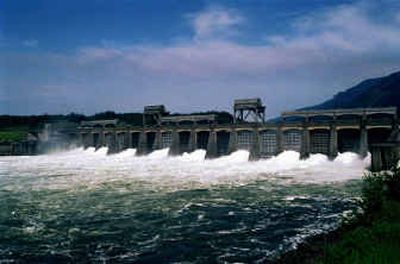Energy conservation now can stop rate increases, official say

PORTLAND – Without robust efforts by consumers to conserve electricity in coming months, utilities throughout the Northwest could see an across-the-board rate increase because of drought, energy officials said Thursday.
“If we don’t change anything, we are heading toward a rate increase. What we’re talking about is trying to change our destiny,” said Bonneville Power Administrator Steve Wright, who was joined by nine other energy officials from various utilities in urging conservation.
Dry weather affects power generation in the Northwest – Washington, Oregon, Idaho and parts of Montana – more than other areas because the region is highly dependent on the energy produced by its dams.
Roughly 60 percent of the energy produced in the region is hydroelectric, compared with 15 percent nationally, said Wright.
“We are a region that is highly reliant on hydroelectricity,” said Wright. “And so, on the weather.”
Water levels are now at 63 percent of normal, making this one of the worst years on record. The unseasonably warm winter has been compounded by the fact that the last six years have been dry, too.
“This six-year period will set a record for lowest precipitation,” he said. “And that includes the Dust Bowl years of the 1930s.”
Unlike in 2001, the current energy crunch will not lead to blackouts, officials said. Instead, its impact stands to be financial.
“We have enough power to keep the lights on this summer,” said Kevin Lynch, vice president of PacifiCorp. “The question is, at what cost?”
Jim Piro, Portland General Electric’s chief financial officer, said PGE is bracing for a $50 million loss due to drought, a cost he said the company will pass on to shareholders. But if the drought continues and consumers do not cut back on usage, Piro said, a rate increase is likely.
In most years, the BPA sells its surplus power to energy-strapped states. This year, it expects to have to buy power. And with drought still affecting most of the West, the price it pays is expected to be steep.
“This will have to show up in rates somewhere,” said Wright. “We can’t do anything about the weather, but we can do something about our energy use and in so doing keep our electricity bills lower than they would otherwise be.”
Officials said customers can conserve energy by cutting back on their use of appliances, turning on lights only when necessary, switching off idling computers, replacing halogen floor lamps with compact fluorescent lights, adding insulation to attics and fixing leaks in air ducts.